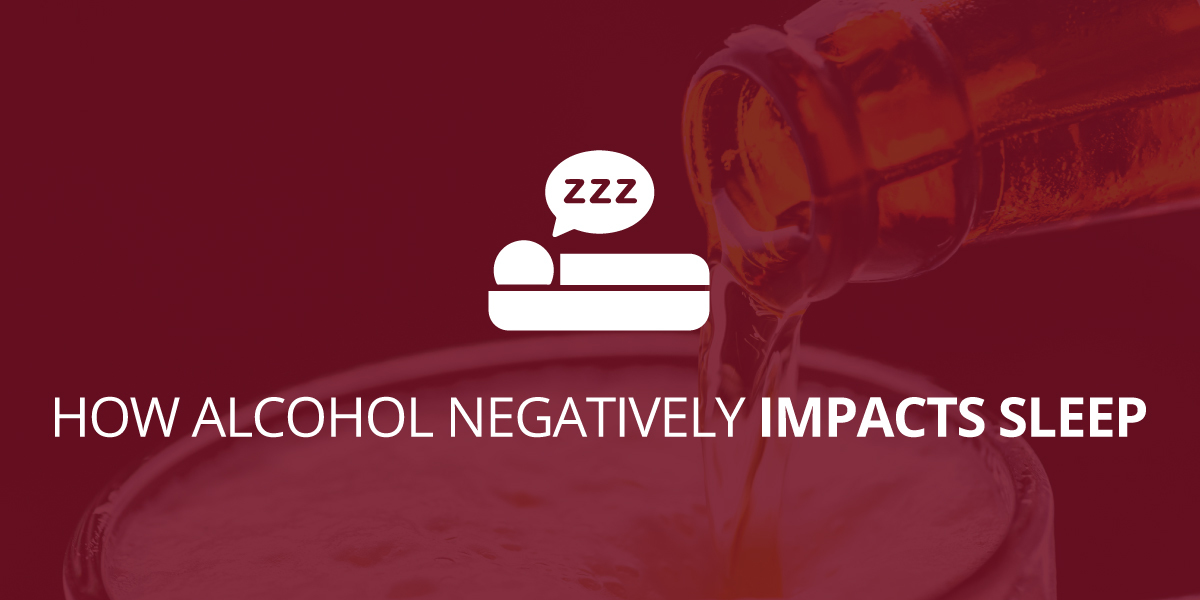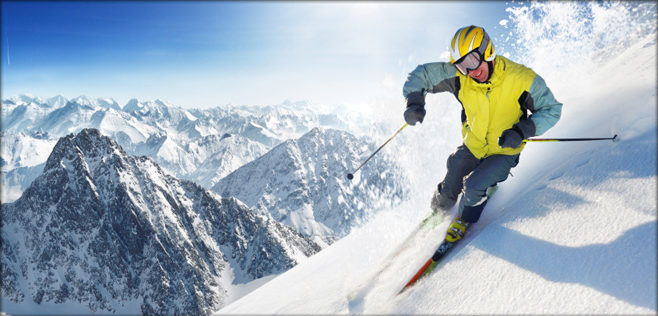For anyone who needs to get up and drive the next morning, a good night’s sleep is important. Without getting enough sleep, and deep enough sleep, you will wake up groggy. You will have trouble focusing, taking in new information, and working on complex tasks.
All of this impacts your ability to drive safely, and no amount of caffeine is going to fix it. When you drink alcohol before you go to sleep, even a drink or two at happy hour, it negatively impacts your sleep and can cause dangerous drowsy driving.
Alcohol Wakes You in the Middle of the Night
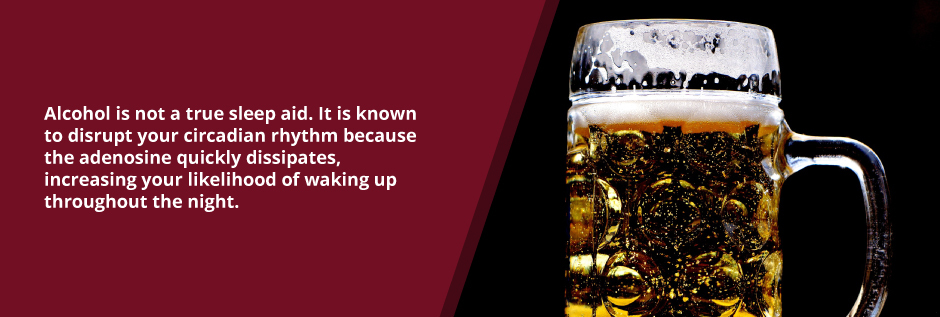
Many people have a night cap expressly for the purpose of helping them fall asleep, and a drink will help—to a certain extent. According to the National Sleep Foundation, alcohol is known to help people fall asleep a little quicker because it produces adenosine.
However, alcohol is not a true sleep aid. It is known to disrupt your circadian rhythm because the adenosine quickly dissipates, increasing your likelihood of waking up throughout the night.
Another issue is that alcohol is a diuretic and greatly affects your bladder. Most nights, your body knows to sleep through the night and that you will relieve your bladder in the morning. But after a couple drinks, your bladder may need to be emptied long before morning.
Alcohol Impacts Your Brain Waves
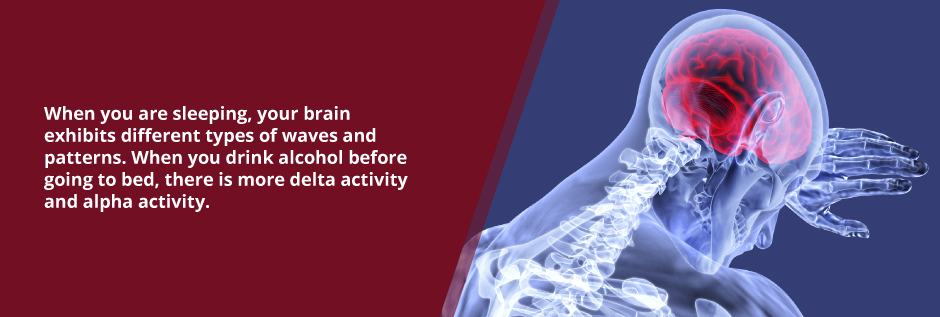
When you are sleeping, your brain exhibits different types of waves and patterns. When you drink alcohol before going to bed, there is more delta activity and alpha activity.
Normally, alpha waves appear when you rest quietly but not while you are sleeping. This combination of delta and alpha waves make it more difficult for you to experience a deep (Rapid Eye Movement) REM sleep.
REM sleep is known as being the most restorative type of sleep, which your body and brain needs to fully function. The less REM sleep you get through the night, the more fatigued you will feel the next day.
Alcohol Aggravates Sleep Disorders
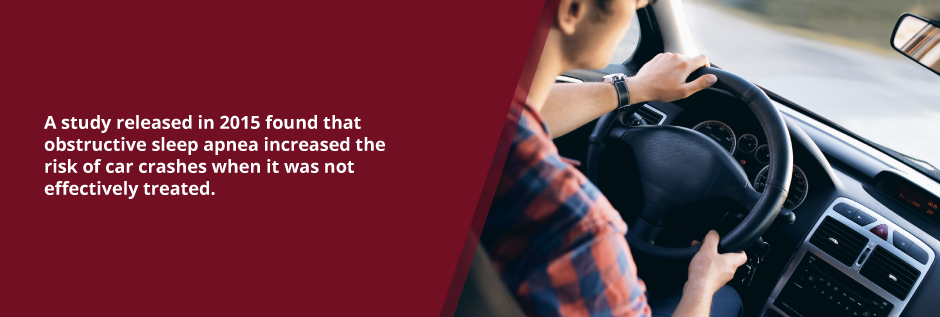
If you have sleep apnea or another breathing, sleep, or mental health disorder, you may already have difficulties getting a good night’s sleep. Then, when you imbibe alcohol before your sleep, those difficulties are worse. Alcohol’s effect on your muscles can increase snoring and sleep apnea, which is a particular concern for driving.
A study released in 2015 found that obstructive sleep apnea increased the risk of car crashes when it was not effectively treated. Researchers at the Center for Sleep and Vigilance Disorders at the Sahlgrenska Academy at the University of Gothenburg in Sweden studied 1,478 sleep apnea patients who were involved in 82 motor vehicle accidents during the study period.
They also experienced 56 accidents in the previous five years to their diagnoses and 26 accidents in the five years since their diagnoses. Compared to the control population, the sleep apnea patients were close to 2.5 times more likely to be the at-fault driver in a motor vehicle accident.
Was the at-Fault Driver Drowsy?
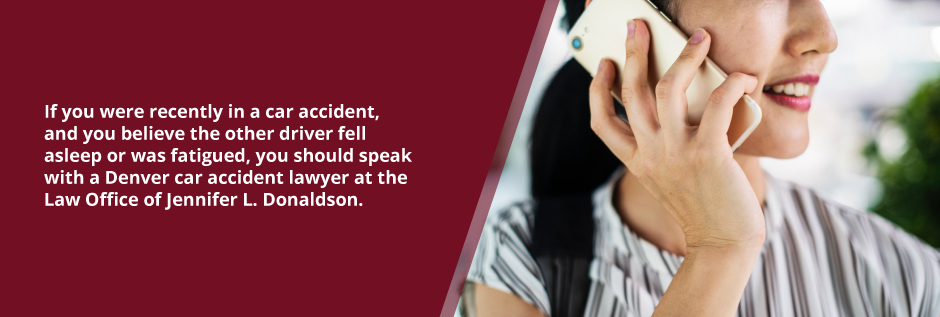
If you were recently in a car accident, and you believe the other driver fell asleep or was fatigued, you should speak with a Denver car accident lawyer at the Donaldson Law, LLC. Jennifer is experienced in handling drowsy driving accident claims. To schedule a free consultation, reach out through the online form or call (303) 458-5000.

